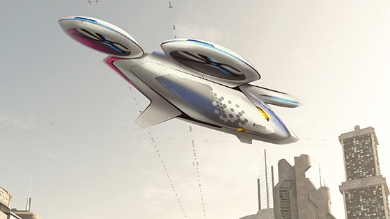Commuting can be quite the hassle for anyone living in urban areas. We’ve been hearing a lot about companies developing methods of everyday flight transportation for consumer use, but Airbus wants to make the concept a reality over the next 10 years.
The company will even begin testing the first vehicle prototype at the end of 2017. While it appears to be the stuff of science fiction, we may just live to see a new dawn of transportation, in which we fly above the standard traffic, instead of waiting in it everyday.

Airbus has been developing radical concepts that it believes will relieve urban congestion. To assist in these efforts, it has recruited the help A3, its Silicon Valley innovation outpost. A3 project executive Rodin Lyasoff and his team are currently working on a project named Vahana, an autonomous flying vehicle platform for individual passenger and cargo transport, to help make everyday air commuting a reality.
“Many of the technologies needed, such as batteries, motors and avionics are most of the way there,” said Lyasoff.
In the mean time, Lyasoff will work on technologies that will help make this possible, such as reliable sense-and-avoid technology, since there has not been much focus on the technology for airborne applications.
A3 isn’t the only group working toward this goal, though. Airbus maintains a series of interconnected projects, such as one underway in France and Germany where developers are working on an electrically operated platform concept for multiple passengers. The aerial vehicle, CityAirbus as it is called, would have multiple propellers and resemble a small drone . At first it will be designed for pilot operation, but future designs would be equipped with fully autonomous operation.
“In a not too distant future, we’ll use our smartphones to book a fully automated flying taxi that will land outside our front door – without any pilot,” said Tom Enders, Airbus Group CEO, in the Airbus Group’s company magazine.

Comments are closed, but trackbacks and pingbacks are open.